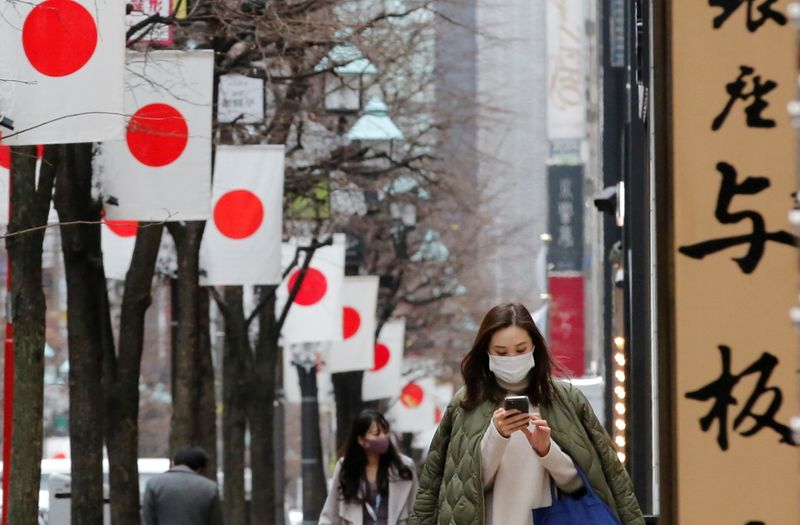TOKYO (Reuters) - Japan's factory activity growth in October picked up from the previous month, while that of the services sector expanded for the first time in 21 months after an easing of coronavirus pandemic restrictions at home.
Manufacturers struggled with supply chain disruptions and surging raw material demand that fuelled the sharpest rise in input prices in more than 13 years, as the health crisis continues to impact the global economy.
The au Jibun Bank Flash Japan Manufacturing Purchasing Managers' Index (PMI) rose to a seasonally adjusted 53.0 in October from a final 51.5 in the previous month.
Key survey components showed output and new orders expanded thanks in part due to stronger overseas demand.
"Private sector businesses... noted an increase in aggregate new business for the first time since April, assisted by a quicker rise in export orders," said Usamah Bhatti, economist at IHS Markit, which compiled the survey.
"That said, firms continued to highlight sustained supply chain pressures and material shortages."
The au Jibun Bank Flash Services PMI Index rose to a seasonally adjusted 50.7 from the prior month's final of 47.8.
That meant services sector activity stayed above the 50.0 threshold that separates contraction from expansion for the first time since January 2020, before the economy went through its deep COVID-19 slump.

"Panel members commonly associated the slight recovery to a reduction in COVID-19 cases and looser pandemic restrictions," said Bhatti.
The au Jibun Bank Flash Japan Composite PMI, which is estimated by using both manufacturing and services, rose to 50.7 from September's final of 47.9, marking its highest since April.